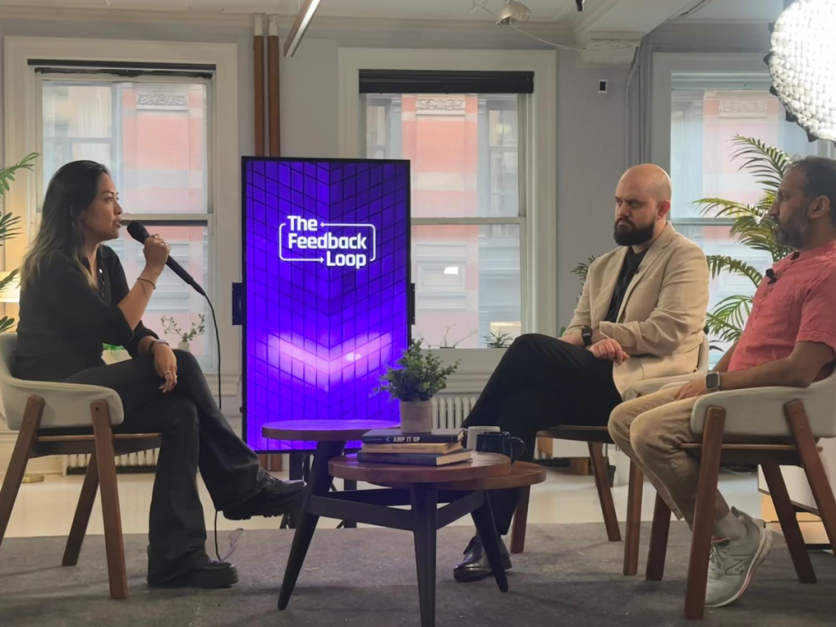
As third-party cookies vanish and privacy regulations intensify, a quiet battle is taking shape across the internet. On one side are legacy platforms built on hidden data extraction. On the other are startups betting on a future centered around user control, transparency, and intentional data sharing. Cassandra Sebastian Pernia's Zyro is firmly in the latter camp.
Zyro belongs to a new generation of infrastructure-driven platforms that view current data practices as fundamentally broken. The digital advertising economy, once valued at over $700 billion, is scrambling to adapt as the tools that powered it become obsolete. Apple has tightened app tracking, Google is phasing out cookies, and marketers are being forced to rethink how they reach consumers. Across the board, brands, adtech firms, and AI developers are searching for more sustainable ground.
Sebastian Pernia argues that the foundation should be built around the user. "There's going to be a trillion-dollar data economy, in which users are paid for their data at scale," she says. "And it doesn't make sense that the people generating that data aren't part of it." AI is training on bad data, which is bad for everyone.
Zyro presents itself as a zero-party data platform. This refers to information that users willingly and proactively provide, rather than data scraped from browsing patterns or inferred behavior. Through Zyro's interface, consumers share their values, preferences, and behaviors directly. Brands can then access this structured data through APIs, allowing them to engage based on verified intent rather than opaque profiling.
The concept of consent-based data isn't entirely new. Companies like LiveRamp, Permutive, and blockchain-native projects such as Streamr and Ocean Protocol are also building around user permission. What sets Zyro apart is its emphasis on consumer usability. Pernia describes the approach as part of an "agentic web," where digital systems respond to user-defined input instead of manipulating behavior quietly in the background.

"Agentic AI is about serving people on a deeper level," she says. "It's about restoring control, allowing people to decide how technology serves their lives, not the other way around."
That concept has found particular resonance with Gen Z users. While they are skeptical of traditional data collection, they often avoid convoluted privacy dashboards or tools that feel overly technical. Pernia notes that the demand is less about secrecy and more about meaningful participation.
"Users tell us, I'll give all my data away if it benefits me," she says. "It's not about secrecy. It's about value, control, and alignment."
This shift in consumer expectations is being recognized at the enterprise level. According to Gartner, 80 percent of marketers plan to eliminate personalization strategies reliant on third-party data by 2025. In place of outdated methods, companies are looking for platforms that deliver trustworthy, user-permissioned data at scale.
Zyro's answer is what Sebastian Pernia calls a "trust graph." Unlike traditional models that infer user intent from passive behaviors, Zyro's trust graph starts from explicit user preferences and then thoughtfully expands outward, connecting users through shared values, interests, and confirmed signals. Each interaction on Zyro is designed to be contextual and explicitly permission-based. Zyro's broader vision is to replace the inefficiencies of current advertising ecosystems with a system grounded in verified intent and mutual benefit.
"A two percent conversion rate is considered excellent in paid advertising," Pernia says. "That's insane. Brands are throwing millions of dollars at dark funnels because they have no better option."
Zyro is currently raising a $3.5 million pre-seed round. The funds will empower rapid growth, scale enterprise integrations with strategic partners, and bring this transformative vision to mainstream adoption. Initial traction has come from consumer goods companies aligned with social values and other AI agents seeking access to reliable training data. While Zyro is initially focused on winning the consumer, the power lies in what they are doing for industries by creating a new consumer consented data layer.
Despite the promise, the path forward remains complex. Many startups make similar promises, but building a robust, consent-driven data infrastructure requires significant technical innovation, legal clarity, and intuitive user experiences. What sets Zyro apart is not merely its technology or its vision, but the unwavering conviction and deep user-centric philosophy driving its founding team.
Sebastian Pernia, a first-generation American who previously held product leadership roles across direct-to-consumer, finance, and blockchain, frames Zyro's mission in creating accessibility and opening the narrative to everyone. She speaks candidly about sleeping on floors in the company's early days and building without access to generational wealth. Her motivation, she says, is rooted in necessity and giving people choice.
"My north star is accessibility," she says. "I spent most of my life carving out pathways into rooms and spaces designed to exclude people who grew up like me. So much of what exists today is built for the privileged few, the 1%. It's time to build something inclusive, something that amplifies all voices and narratives. I don't believe in merely building within existing structures, it's our turn to rewrite and reinvent them."
That sense of urgency has shaped how Zyro has grown. The beta launched with a waitlist largely built through grassroots support and founder storytelling. Pernia credits her team—composed primarily of first-generation professionals and technologists—for committing to a shared belief that the internet needs new rules.
"We don't expect users to care about AI or data architecture," she says. "They care about feeling understood. They care about time, trust, and utility. That's what we're building for."
In a tech landscape crowded with buzzwords and lofty promises, Zyro prioritizes clarity and genuine value. The critical question isn't whether Zyro can realize its vision; it's how soon. Collaborating with early supporters and pioneers in the agentic web like Silicon Valley Bank, Fenwick, Visa, and Smart Steps Co., an internet built on consent, not surveillance, is no longer a niche concept; it is fast becoming a business necessity.
ⓒ 2026 TECHTIMES.com All rights reserved. Do not reproduce without permission.




